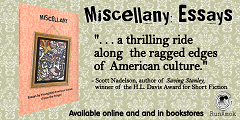Memorial
My grandfather Bud was a member of the Fourth Marine Division that made four tours in the Pacific during World War II.
The division’s battles in Iwo Jima inspired the statue of six soldiers hoisting the flag which serves as the iconic Marine Corps War Memorial. The plaque reads “Uncommon Valor was a Common Virtue.” The casualty rate was over forty percent on the island during the twenty-six days of battle. Bud returned home with a sharpshooter metal and a small medical scale keepsake from a raid of a Japanese camp, but he rarely spoke of his experiences in Japan to his children, my mother and my uncle. He died before I was born.
Returning home from the war, Bud became an entrepreneur, leasing plots of land in Eastern Ohio and drilling for oil. He manned his own rig, unearthing the property’s subterranean shale. My mother recalls him returning night after night, placing his thick gloves on the table and unlacing his work books with a sigh: “Another dry hole.”
Bud brought my mother and uncle with him sometimes. My uncle helped him lay pipelines, anchor rigs, and paint the holding takes. Bud placed different layers of sand in clear jars for my mother to see what he was drilling through. While persistent, he never struck it big.
A generation later and the land he formerly leased is an attractive fracking prospect. He was always drilling in energy-rich soil, he just couldn’t go deep enough.
I continue his legacy in my own way by teaching.
I am my own boss in the classroom, mining the minds of young men, uncertain if I am ever striking it right. I’ve come home, so often, with that same feeling as my grandfather did, heaving a heavy sigh at the dinner table, thinking I wasted all my words on deaf ears.
Whenever I do learn that I have reached a student, it is years after I taught him. I remember a student who came to me years later saying he is majoring in philosophy because of the unit on Transcendentalism that I taught. That student had me as a teacher in my first year of teaching. I made them read Emerson’s The American Scholar in its entirety—a mistake I’ve never repeated as a teacher. I assumed the unit was a failure which was disappointing because I decided to be a teacher while reading The American Scholar on a solo trek across the country in early sobriety. In reality, it’s a horrible text to engage your typical high school boy. And still, this student, whose nose I would have to hold a mirror under to see if he were breathing during class, decided to major in philosophy. A teacher never knows if the mind he is instructing is engaged or not, but he teaches anyway.
My grandfather Bud’s legacy has also extended into my creative life.
When Bud got back from the war, he never spoke a word of his experience to my mother. Losing forty percent of your division can’t be an easy thing to talk about. While quiet, both about the war and in general, Bud loved the power of words.
My Uncle Mark, Bud’s son, is a poet himself, who has a few collections available on Amazon. We have been sharing poetry for years. I learned from a letter my uncle sent me in rehab that my grandfather read poetry every day. It was an emotional time for me to learn that I shared the love of poetry with the heroic grandfather I never met. My uncle gave me a copy of Bud’s favorite poem: “The House by the Side of the Road” by Sam Walter Foss. Here’s the last stanza:
Let me live in my
house by the side of the road
Where the race of men go by-
They are good, they are bad, they are weak, they are strong,
Wise, foolish- so am I.
Then why should I sit in the scorner’s seat
Or hurl the cynic’s ban?-
Let me live in my house by the side of the road
And be a friend to man.”
I cried when I read the poem in my uncle’s letter. It contains a beautifully singular sentiment in all five stanzas: the desire to live apart from the world, while not thinking yourself any better or worse than those living in it. The poem has helped give my newfound freedom—my sober life—direction. I’ve given the poem to my classes. I use it to teach the character Doc from Steinbeck’s Cannery Row, a book I teach because it is my father’s favorite.
Without appreciating our elders, our freedom becomes frivolous. It devolves into this thing we are born with rather than a privilege others fought for. What’s the point in struggling to create a legacy for my son and daughter if I don’t build upon their foundation?
People are quick to reject what is not modern, as if the ancients are unable to communicate through screens. Well, here is a screen that told you a story about a soldier in the second world war, and his grandson who wishes he could have had the chance to give him some of his poetry, and hear about the dry Ohio shale he drilled. Are we anything more than the extensions of those that showed us the way? How could we be more when without them we’d be nothing at all?
That’s why this Memorial Day I’m thinking about Bud, the grandfather I never met—the man who read poetry every day and possessed the grit to drill all those dry holes.

 Previous Post
Previous Post Next Post
Next Post












Thank you for sharing this touching story and beautiful poem.
Beautiful memorial!
Lovely piecentre Mark. Here’s to being a friend of man!
For many reasons Mark, I think this is my favorite post of yours.
You’re a very good man, Mark. Bud is smiling upon you, and your students (not to mention your kids) are fortunate to receive your wisdom.
Very kind of you to write that, HD. Thank you!
Beautifully written Mark!
I don’t want to detract from your post with stories of my own that run similar to yours.
Instead, I would like to thank you. For an honest, well-written, tear-worthy post.
You’re welcome Kristin. I’ve been meaning to write that one for a while. I hope you do write the stories that run similar. I hope you write out all the stories you feel you need to because I know, at least I think from my experience, it’s how to arrive at true freedom.
This is a beautiful tribute, Mark.
xo
Wendy
here’s to Bud, Lest we forget.
beautiful lines mark, hope your taking it easy(ish)
What respect.
And isn’t poetry at it’s very best when someone reads it and can immediately know the depth of it? I did. Thank you.
That is the best. That is the goal! That is, well, everything. Thanks Colleen.